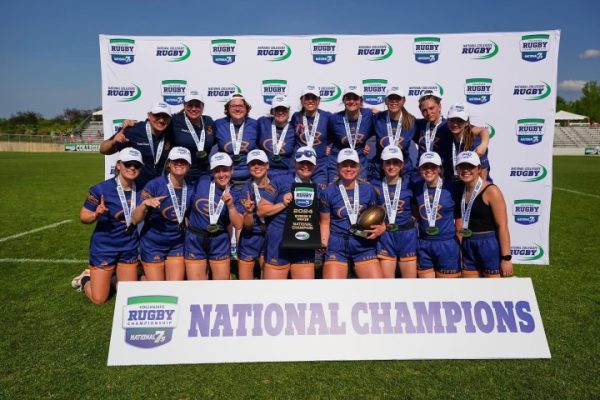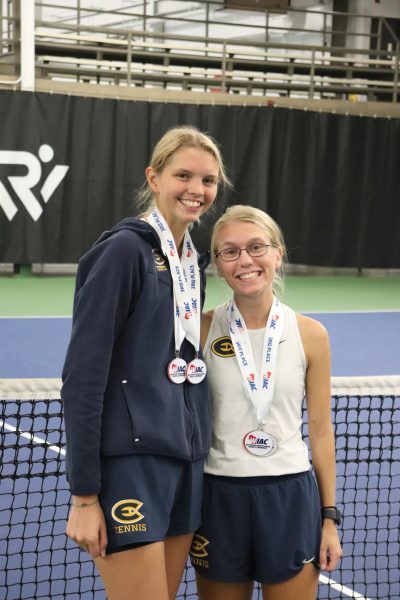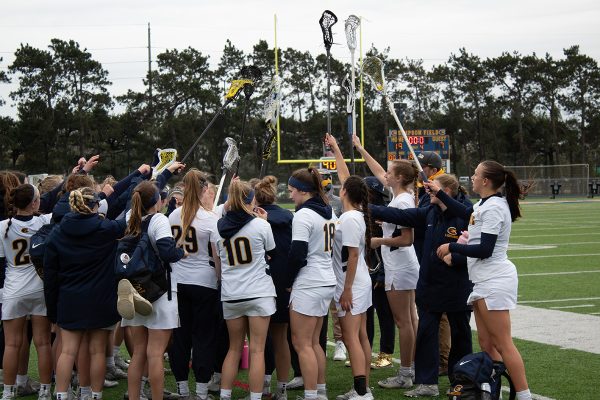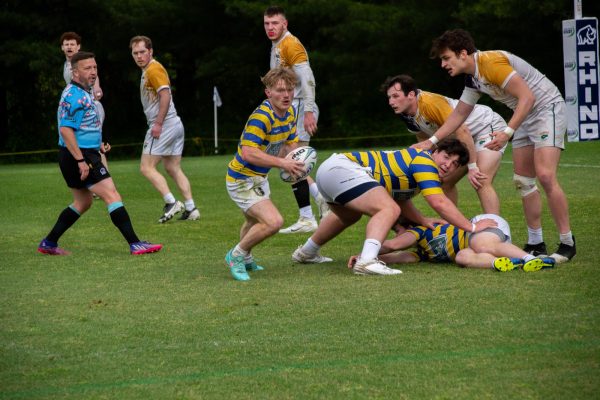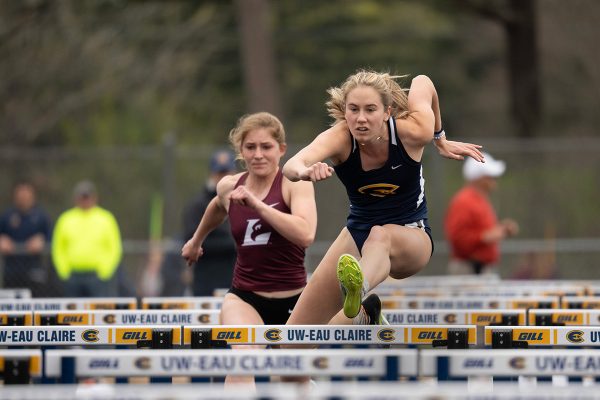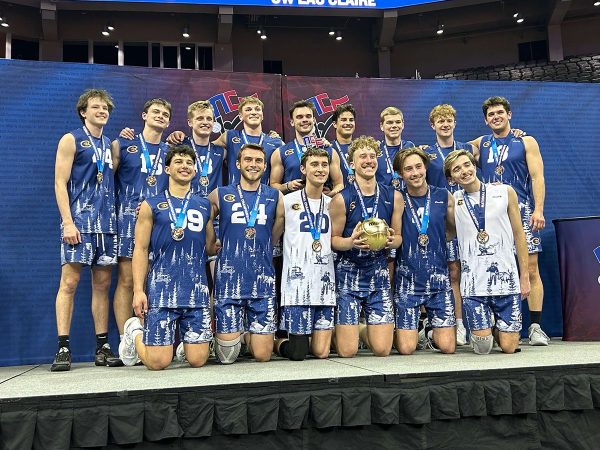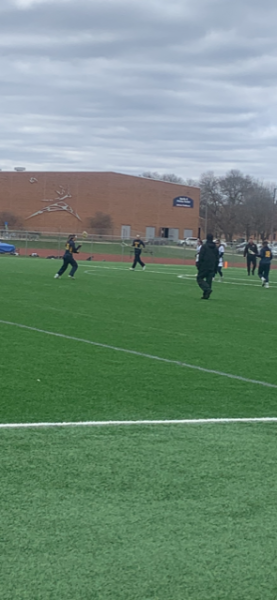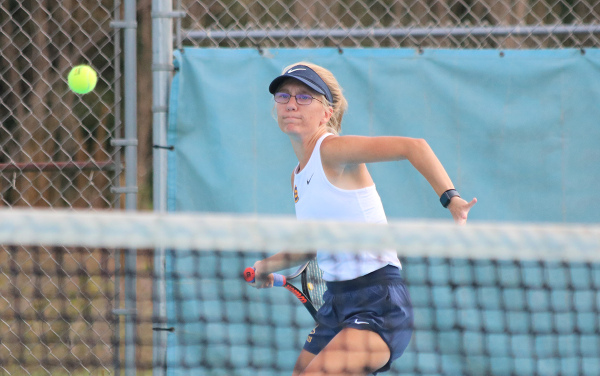Balancing between work and play
Head coaches of UW-Eau Claire reflect on coaching experiences, challenges
Photo by Meghan Hosely
Men’s and women’s tennis head coach Tom Gillman practices drills with the women’s team at practice.
April 15, 2015
For the past 15 years, whenever the men’s and women’s tennis teams are in season, head coach Tom Gillman makes a one hour, 15-minute commute to Eau Claire about five or six times a week to work with his team.
The head coach, in his 15th season with the men’s team, and his eighth with the women’s, has never lived in Eau Claire. Rather, he resides on the other side of the Mississippi River in Red Wing, Minn.
Director of Athletics Dan Schumacher said Gillman isn’t the only head coach who isn’t employed otherwise by the university. Although some head coaches are professors or work on “other duties” in the university, a few balance other jobs on top of their coaching commitments.
Of the 22 NCAA sports on campus, UW-Eau Claire staffs 15 head coaches. Schumacher said. Seven head coaches are also employed with the university with sport administration duties, three are professors and the remaining five are part-time coaches.
Schumacher said the main differences between part time and full-time coaching are the benefits. Part time coaches “give full time level,” with part time pay, no medical benefits and no retirement benefits.
He said every sport has a specific organization coaches belong to, and a job board accompanies the organization’s website.
Before coming to Eau Claire, Gillman was a high school tennis coach, and said a former alumnus of Eau Claire told him the job was opening up to coach at the collegiate level. Gillman was initially hired for both men’s and women’s positions, but stepped down from the women’s position after three years. He stayed with the men’s team, but went back to Red Wing to coach girls at the high school level.
“I left to go back to Red Wing to coach my daughters,” he said. “I coached three years with the women, and then I left … and then I came back. I’ve been back for about five years now.”
For Gillman, coaching both the men’s and women’s teams are his jobs. In Minnesota, he said his wife owns a business, which has kept their roots planted in the area instead of moving into Wisconsin.
Jean DeLisle, head gymnastics coach, also resides in the Twin Cities area. The head coach, who just finished her 12th season at Eau Claire, said what keeps her grounded an hour and a half away is her family and her job.
“We live close to my in-laws … my daughter is a junior in high school and I wouldn’t want to uproot her at this point,” she said. “And I do have a good full-time job that works with what I’m doing.”
Despite living an hour and a half away, DeLisle said some of her assistant coaches are also from the Twin Cities, so everyone carpools. There is one assistant coach from the Eau Claire area, who DeLisle said gets her athletes warmed up before the rest of the staff arrives in the gym.
Head volleyball coach Kim Wudi is one of the 10 coaches who are employed otherwise with the university. Wudi is entering her eighth year as both a head volleyball coach and an administrator for the athletic department.
Wudi said because of the two hats she’s had to wear during her tenure at Eau Claire, she’s felt like she was working two full-time jobs at times. The head coach said she remembers she would go recruit somewhere for the morning before heading back to Eau Claire to help set up for a home game.
“I think on some days, I worked about sixteen hours,” Wudi said.
During the offseason, Wudi said her job was split 50/50 between volleyball and administration work. When the Fall rolls around, she said her job would shift to 90/10 between volleyball and administration work, respectively.
While the overall expectation of producing a winning season isn’t wavered whether or not a coach is a full-time employee of the university versus a part-time employee, Schumacher said he is more lenient on things such as staff meetings.
“It’s hard to meet sometimes, because part-time head coaches have other jobs,” Schumacher said. “We can’t just ask someone to leave their job during the day for a staff meeting, so we try to have them early in the mornings or at night. But sometimes that doesn’t even work.”


